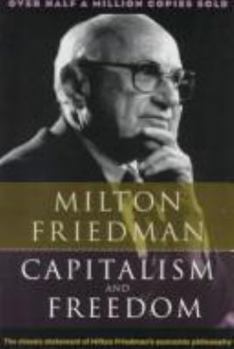Capitalism and Freedom
Select Format
Select Condition 
Book Overview
One of TIME magazine's All-TIME 100 Best Nonfiction Books One of Times Literary Supplement's 100 Most Influential Books Since the War One of National Review's 100 Best Nonfiction Books of the Century... This description may be from another edition of this product.
Format:Paperback
Language:English
ISBN:0226264017
ISBN13:9780226264011
Release Date:September 1982
Publisher:University of Chicago Press
Length:208 Pages
Weight:0.52 lbs.
Dimensions:0.5" x 5.3" x 8.1"













